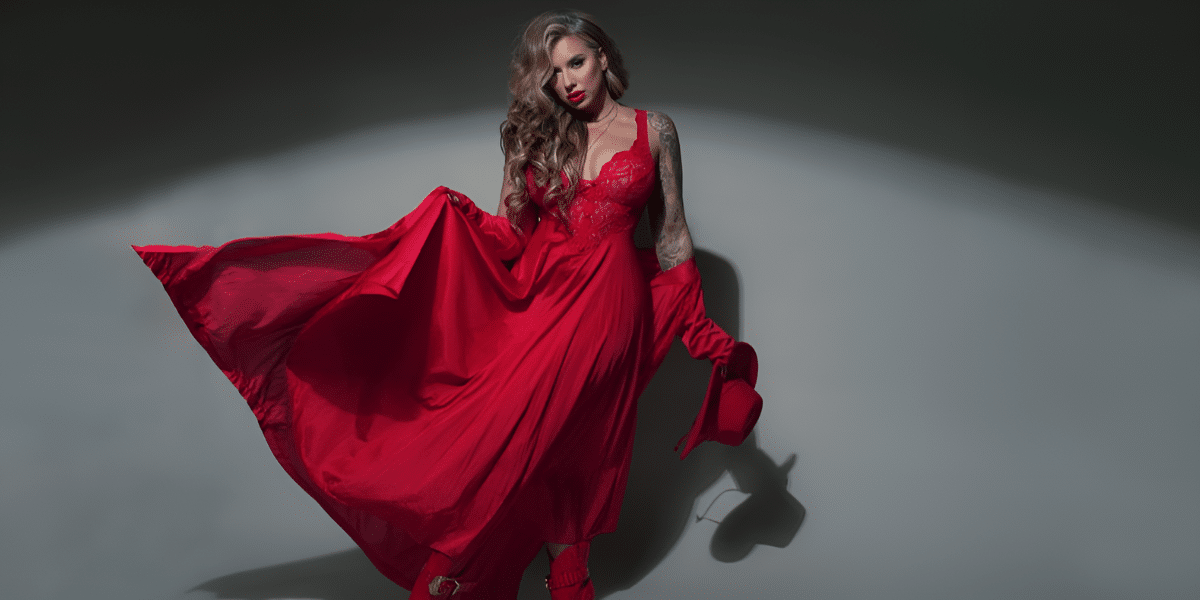Keira Keeley is a professional theater actress who works and resides in New York City. Although she wanted to be an actress ever since she was a little girl, during middle school and high school she was very involved in sports, as well. In fact, oftentimes in those formative years, Keira had to make a choice to spend her free time between participating in theater and participating in sports, and she usually chose sports. However, when she went to college, Keira made a conscious decision to pursue her childhood dream and began to immerse herself in the study of acting and the theater arts. She also studied English in college and graduated with a double major, thinking seriously of becoming an English teacher should her foray into acting not pan out. However, with a lot of luck and hard work, Keira Keeley found success as an actress. Since then, Keira’s career in the world of New York theater has only grown, and she has been involved in professional acting for more than two decades.
What do you love most about the industry you are in?
There is a concept in Buddhism called Sangha, and it basically means finding your community or your people. I’ve always thought of the theater as my Sangha. It’s my community of people and artists. Theater professionals have a really intense and honest collaborative relationship and a process of creativity, and I think that’s very unique.
What keeps you motivated?
Curiosity. The challenge. The payoff. Diving really deep into a work or a character and having that dialogue with each and every member of an audience. Even if I reach one person during a performance, then all the effort and preparation was worth it to me. I have had those experiences. It’s the idea of holding a mirror up to each audience member so that they can, in a safe way, witness or learn from what I am presenting or embodying in order to absorb it into their own life. You should be different when you leave the theater from when you came in. Even if you hate the show, I would hope that you had a great ride home in your car and that the performance got you pumped up and talking about how much you hated it or how much you loved it—I don’t care. But you should be different than when you sat down.
How do you motivate others?
I’m very big on listening because it validates the other person’s past experiences, what they are currently experiencing, and where they’re coming from. A director tip that I’ve learned and that borrowed for my own life is, instead of giving advice or trying to solve the other person’s issue, I just repeat back to them what they have said as I understand it so they can hear it from an external source, and that usually brings on some clarity and inspiration.
How has your career grown from its early days to now?
I went to a week-long summer camp for acting when I was in grade school, and then I became enamored with sports after that. When I was a junior and senior in high school, I performed in a play and a musical each year. Then I did some community theater. After that, when I went to college, I really committed to studying acting and that’s when my vision for a career in theater really started to take shape. I’ve done a lot of backstage work. In college, I directed, but I also sound designed, and costume designed. I built sets, too. I put them up, took them down, loaded them in, loaded them out—all kinds of grunt work, including working at concession stands. In New York City, I spent some time as a spotlight operator, I was also a carpenter, and I was a dresser doing quick changes for other actors and actresses.
I enrolled in the Actors Theatre of Louisville Apprenticeship program. In fact, I was one of only eleven girls in the nation that auditioned and was invited into that ensemble. After that, I moved to New York City. In an effort to network, I wrote letters to people by hand because I couldn’t afford a printer, saying, “I met you at Actors Theatre of Louisville,” asking, “Do you have any advice for breaking into Broadway, or even off-Broadway?” I went to open calls at 4 am, getting dressed, putting on pantyhose, full face and makeup, and going and sitting at the Equity Building—I was an Equity Union membership candidate—all day long, hoping that other actors didn’t show up, and I could have their two minutes on stage. Sometimes that worked, and sometimes three days in a row passed before I got something.
I had finally gotten my Equity card in 2006 and then I found an agent. Having an Equity card means you are in the union. I started off as an Equity membership candidate, meaning I earned weeks and points in order to earn union status. Once I did a union show, I was finally offered membership. The show was The Thugs by Adam Bock. When that happened, a union rep came and invited me to join. So, I did, and I got my actor’s Equity membership card. I had to pay the joining fee, and ever since then, I have had to pay dues. Later on, I got my first TV role on the show Rubicon, which was on AMC. It was before Netflix really took off and before the binge watching-era, so this mystery show did not get picked up for a second season, but I was a regular. That was my first TV role. I had a union rep invite me to join SAG after that , which is the Screen Actors Guild. I’m in all the unions you can be in as an acting professional.
I didn’t get discovered. I hit the bricks and did a lot of work. Then it was off-Broadway, next thing you know—not very quickly, but quick enough. It was an enjoyable journey. I was attending interviews, getting offers, and then eventually, I was able to do some TV work and win some awards. It was a long journey, but I loved every minute of it.
Where do you get your inspiration from?
First and foremost, always, I get it from the text and the clues in the text. After that, I get it from drawing from my own life experiences, observing other people’s life experiences, having a lot of empathy, and really observing what other people are going through, for good or for bad. Then I try to absorb all that and remember it to recall later in performances.
What traits do you possess that makes a successful leader?
I would say perseverance. Also, communication, which includes listening and collaboration.
What suggestions do you have for someone starting in your industry?
This is something I did, and I highly recommend it: Try to perform all the positions in a production. I mean, sound, lighting—everything. Do as many as you can. Acting might be your dream, or directing, or any other creative position or administrative position, but try to do as many of the roles in a production as you can. It teaches you respect and humility. It teaches you about everything that goes into a production, and it teaches you to appreciate the other roles. I like to thank everybody. For instance, whenever they compliment me or say, “Your performance was great and I’m so glad to have worked with you,” I’ll say to the lighting designer, “Well, nobody would have seen anything if you hadn’t done such an amazing job with the lights.” If you don’t have everyone in their Sangha or everyone in a production’s community doing their best, then any one aspect of it doesn’t matter. The production doesn’t work. And that includes appreciating the audience too. I think Tallulah Bankhead said, “If you want to save the theater, please don’t be an actor, be an audience member, darling.”
What is your biggest accomplishment?
My biggest accomplishment was winning the Theater World Award. This award was for my performance in The Glass Menagerie by Tennessee Williams. It’s an award you are only eligible for once and it’s for your Broadway or off-Broadway premiere. It’s kind of a handshake or a pat on the back from the industry that says you’re on the right track, that you’re supposed to be here. When you don’t have money—and I didn’t! I was washing my clothes in my apartment sink because I couldn’t really afford the New York City laundromats—and you’re not getting parts, it’s difficult to persevere. You think you’re too fat or you think you’re too thin. You think, “Maybe I should change my hair, and that means I have to get new headshots. I can’t afford that.” Everything is more difficult when you’re financially strapped. There are always a lot of challenges in the industry, whatever stage of your career you’re in. I remember the challenges from early on in my career, and then this award comes along. It was the theater community saying, “You got something kid. Keep going.” That meant the world to me, because I really needed it at the time. I won the Theater World award in 2010 for The Glass Menagerie, which I ended up doing for eighteen months on and off at three different venues. That was also really exciting. I had a very loyal group of people lobby to keep me on the production instead of replacing me with a celebrity.
Outside of work, what defines you as a person?
I’m proud of my sense of humor. I like to have fun. I like to be playful. I think a lot of people would agree with that assessment of myself. I also have a lot of compassion, which leads to having patience and an empathy for others. I’m a very understanding person. I’ve always had this creative side, and my creative point of view allows for some really unique problem solving, which is really helpful. I also love my dog and I love my family. I have a long-haired chihuahua named Bella. She’s just beautiful. I’ve had her for seven years now, and she’s not a little yippy dog or ankle-biter. She’s actually really cool.
Where do you see your career in five years?
These are some of the things I’m hoping for, that I’m trying to visualize in my mind’s eye, and I would really like them to come true: I’d like to do more voice work. I’ve done some voice work and it’s really enjoyable. You don’t have to have your hair and makeup done for voice work. You just have to look like a human being and have your voice warmed up. I loved my previous experiences in voice work, so I’d love to do a lot more of it, including audio books and books on tape.
I’d like to develop more of my Shakespeare resume. Shakespeare is something that actresses can age with. There are a lot of queens in his work, so it’s great for actresses after a certain age. That’s something I would like to develop a little more and have on my resume. I’d also like to continue doing new works and original productions, as well. I love that collaborative, creative process. It’s just so exciting and so fresh, so I hope to continue that in my career.
Lastly, I’ve been toying with the idea of directing. I directed one or to things in college and I loved it. One of my projects actually won my college’s equivalent award for best production. It’s a significantly different field than acting though, so I’d probably have to start small and work my way up to bigger projects, but maybe I could collaborate with a playwright I’ve already worked with before, or maybe I could assistant direct for a director I’ve already worked with to get my foot in the door. I’m already in the industry, so hopefully, I get a chance to do some directing. Of course, I’d like to act in more TV shows and movies. I’d love to further explore the medium of on-screen performance. The little bit that I’ve done—it’s like making artwork but instead of charcoal, you’re using oils. It’s just different, and I was excited by the challenge and the newness it presented.










